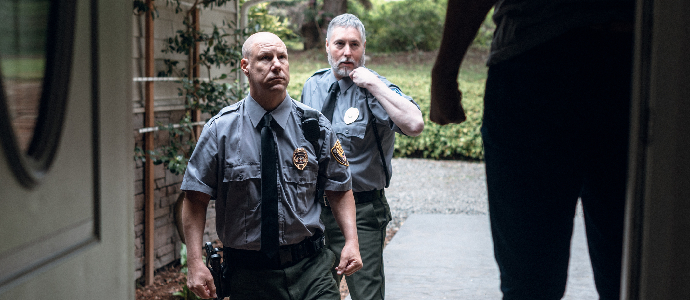Domestic violence – known as assault-family violence under Texas law – is frequently charged throughout Texas and the Houston area. The truth is that it doesn’t take much for a person to be arrested and charged with domestic violence. In many cases, a domestic violence case can be a “he said/she said” that is just based on the word of the alleged victim of the assault with little or no evidence to corroborate the allegation. But what happens when the alleged victim takes back the allegation? Is the case automatically dismissed?
The short answer is that the State of Texas can go forward with a case regardless of the wishes of the victim. Many people mistakenly believe that when the victim makes it down that she does not want the case to go forward, then a domestic violence case is automatically dismissed. That is not the case.
In Houston, when a person is charged with domestic violence, they will be arrested and appear in a county or District Court depending on whether the case is charged as a misdemeanor or felony. The case will typically be handled by the prosecutors assigned to the court (who handle all types of criminal cases). However, when the victim takes back her statement (also known as “recanting”), then the case will usually be transferred to another prosecutor in the Harris County District Attorney’s Office family violence division.
Most of the domestic violence cases that are handled by the family violence division involve victims who have taken back their statement. In other words, when a victim takes back their statement in a Houston domestic violence case, the case will be transferred to a division where the prosecutors regularly handle cases where the victim has taken her story back. In our experience, prosecutors in this division take the position that a victim taking back her statement, on its own, is not a reason to dismiss a case (one domestic violence prosecutor told us “this happens in ALL of my cases”).
Of course, where an alleged victim of a domestic violence wishes to take back her statement that can be very helpful to the defense. Rather than simply having the alleged victim sign an “affidavit of non-prosecution,” a skilled domestic violence defense attorney should work to get a truthful statement from the alleged victim explaining the incident in a truthful way that is favorable to the defendant. It is unlikely to hurt a defendant’s case is a victim provides a statement expressing their desire to take back the charges (unless they discuss the facts of the allegation in a way that is not helpful), but it is much more helpful to have a statement that responds to the allegation and gives substance to a defense in a domestic violence case.
The best statements in domestic violence cases address the allegation in detail, and therefore, it is frequently a good idea for a criminal defense attorney to wait until the major pieces of evidence in the case have been received (the 911 call, police report and body camera videos). At Ceja Law Firm, we collect witness statements in writing and wherever possible, wait until we have had the opportunity to obtain all of the evidence and do our own investigation. In our opinion, too many attorneys rush to get a statement and actually make the case more complicated to defend by.
Once the statement has been received, a skilled domestic violence defense attorney will want to find the optimal time to disclose the statement. In general, a smart defense attorney will only provide the State evidence or statements if he believes that he will get something in return. In other words, if the prosecutor simply takes the statement and adds it to his file (and uses it to be better prepared for trial), then the statement has actually hurt his client’s case.
Of course, the optimal defense strategy will vary depending many factors, such as the facts of the case, the criminal history of the defendant and the victim, and the attitude of the prosecutor who is handling the case. The reality is that to obtain a dismissal of a domestic violence case in Houston, it is frequently necessary to set a case for trial. Prosecutors frequently handle hundreds of cases and unfortunately do not closely review some cases until they are under the pressure of an upcoming trial. Until a case is set for trial, a prosecutor may improve an offer but it can be a lot more difficult to obtain a dismissal. Given this dynamic, in some cases, it is a good strategic decision to not share a statement with the prosecutor until after it is set for trial the prosecutor is already under pressure. Under the right set of circumstances, this approach can lead to a dismissal.
Of course, an effective domestic violence attorney should be ready and willing to actually go to trial. In fact, when choosing a domestic violence attorney, one of the most important questions to ask a prospective lawyer is how often they go to trial. Hiring a lawyer who is not a trial attorney is like hiring a surgeon who is never willing to perform a surgery.
If you are charged with domestic violence anywhere in the Greater Houston area, Ceja Law Firm is an excellent choice. Attorney Jose Ceja is a former prosecutor with the experience and knowledge to tailor the most effective defense to the facts of your case. Call Ceja Law Firm today for a free consultation.











